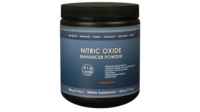- Home
- / CL Answers
- / What is hesperidin, what is it used for and is it safe?
www.consumerlab.com/answers/what-is-hesperidin/hesperidin-supplement/
Save to favorites
This feature is restricted to active members.
Join now to save favorites and get all member benefits, including over 1,400 reviews.
Join NowAlready a member? Sign in here.

Our Members Asked:
What is hesperidin, what is it used for and is it safe?

Answer:
Hesperidin is a bioflavonoid found in oranges, lemons and other citrus fruits. It has shown anti-inflammatory, analgesic, antioxidant, anticancer, antiviral, and blood pressure lowering effects in laboratory studies (Garg, Phytother Res 2001). Based on these and other biological effects, hesperidin has been evaluated for numerous conditions, including heart health, problems with circulation, stroke, cognitive function, depression, cancer and other conditions, but evidence of benefit is limited and often mixed.
Sign in for the full answer about the safety and clinical evidence for hesperidin.
In addition the results of its expert testing, ConsumerLab uses only high-quality, evidence based, information sources. These sources include peer-reviewed studies and information from agencies such as the FDA and USDA, and the National Academy of Medicine. On evolving topics, studies from pre-print journals may be sourced. All of our content is reviewed by medical doctors and doctoral-level experts in pharmacology, toxicology, and chemistry. We continually update and medically review our information to keep our content trustworthy, accurate, and reliable. The following sources are referenced in this article:
- Belczak, Phlebology 2014
- Cesarone, Angiology 2006
- Cesarone, Clin Appl Thromb Hemostat 2006
- Cluzan, Lymphology 1996
- Garg, Phytother Res 2001
- Haidari, J Am Coll Nutr 2015
- Kean, Am J Clin Nutr 2015
- Morand, Am J Clin Nutr 2011
- Nardarajah, Res J Pharm Technol 2014
- Pandey, Nutr Res 2021
- Park, Nutrients 2020
- Pecking, Angiology 1997
- Pontifex, Front Neurosci 2021
- Rizza, J Clin Endocrinol Metab 2011
- Salden, Am J Clin Nutr 2016
- Valls, Eur J Nutr 2021
Join today to unlock all member benefits including full access to all CL Answers and over 1,400 reviews.
Join NowAlready a member? Sign In Here.
Join now at www.consumerlab.com/join/
Agree to Comment Terms
Please abide by the following:
- If you make a statement of fact, such as whether a type of treatment does or does not work, state your basis -- such as personal experience or a published study.
- If you make a positive or negative comment about a product, note whether or not you have a financial interest in the product or in a competing product.
- Please be respectful in your tone.
- Please do not submit any type of HTML markup or scripting as it will not be accepted, nor will posts that exceed 2,500 characters.
For your privacy, only your first name (from your account) followed by a random number will appear with your comment. Your last name and email address will not be displayed.
Your comment has been submitted
We will review your comment before it is posted.

Related CL Answers (8)

Related Content
Join over 95,000 Members
Find the best products with instant access to our latest tests & reviews of over 1,400 health products.
Save money by finding high-quality products at lower cost.
Stay safe with the latest clinical findings, warnings, and expert answers.
Suggest products to test.
Stay informed with our e-newsletter.
Ratings of ConsumerLab

The "Updated" date indicates when new information was most recently added to this article. In the full article, the newest information is highlighted in yellow.
















Submit your comment
This feature is restricted to active members.
Join now to add comments and get all member benefits, including over 1,400 reviews.
Join NowAlready a member? Sign in here.